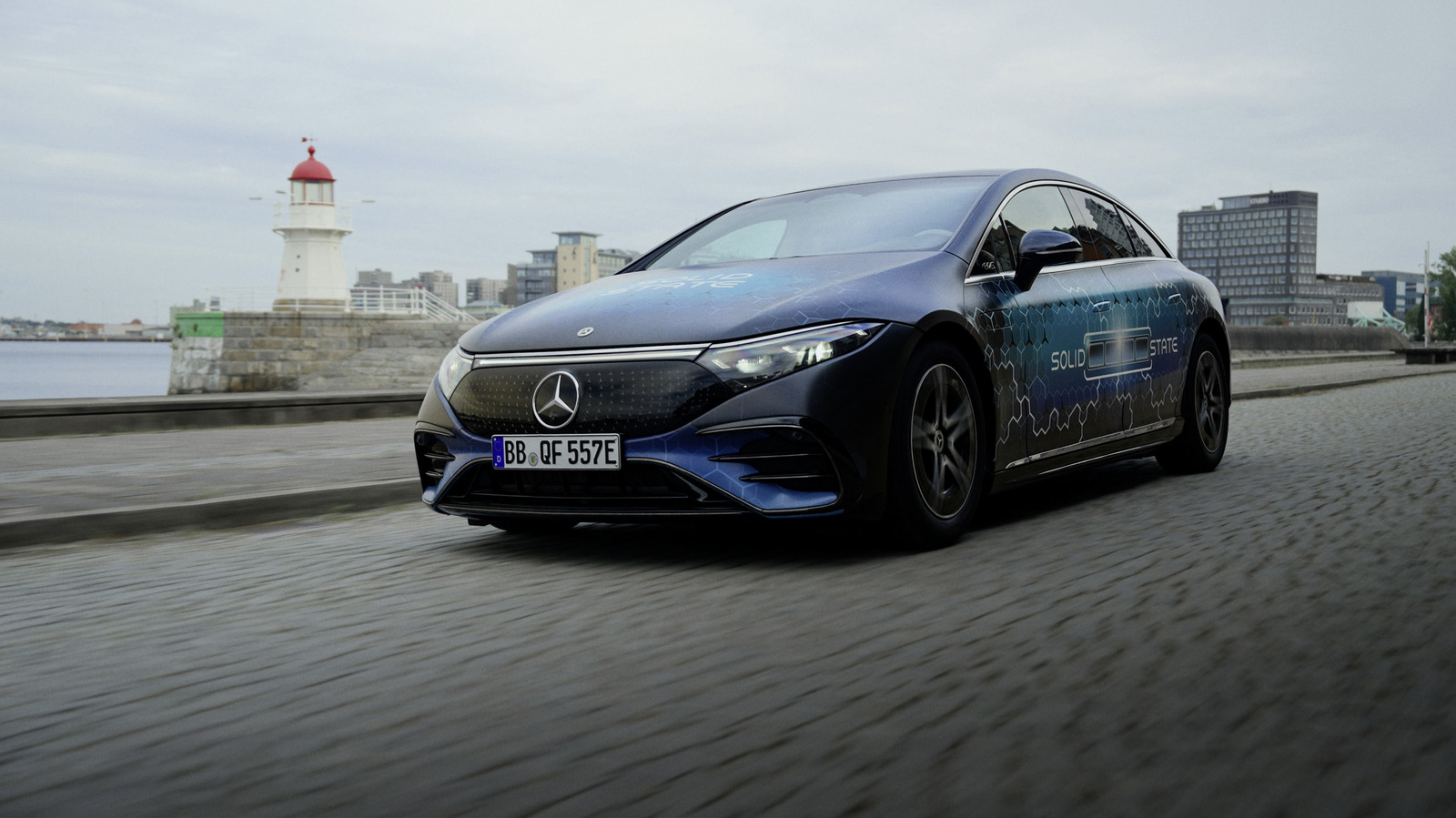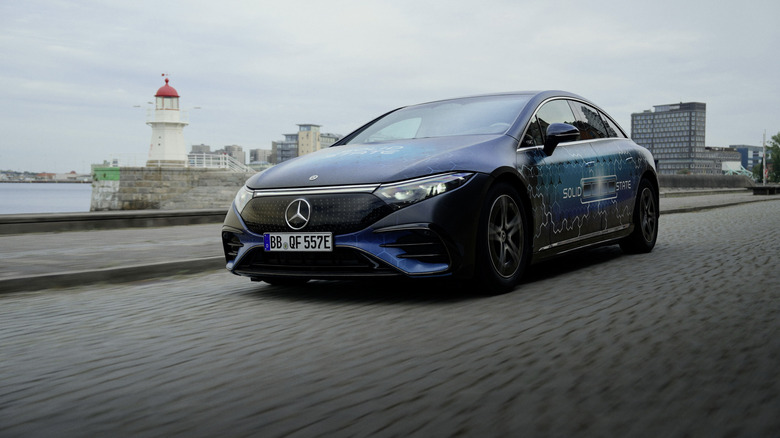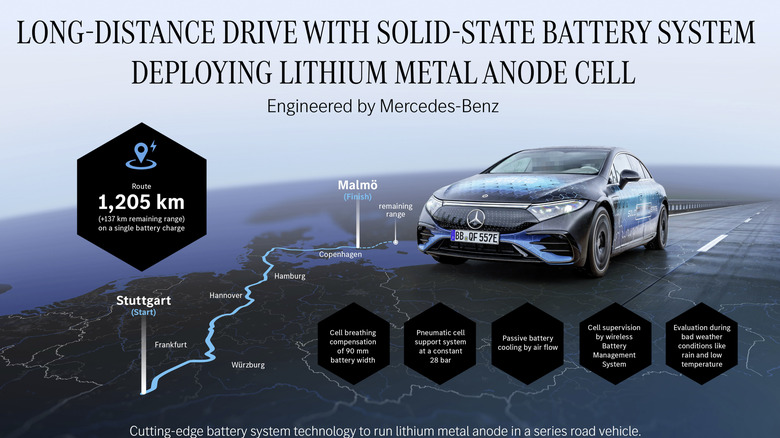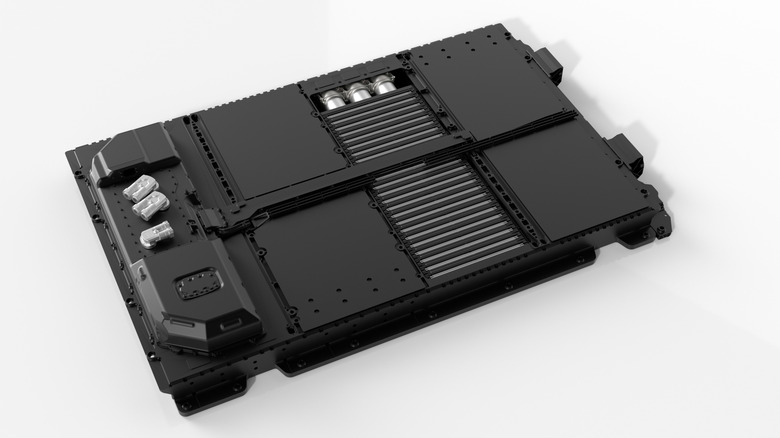Solid-state batteries are the holy grail of EVs, and now Mercedes-Benz says it’s been able to squeeze almost 750 miles of range from a prototype design, with 85 miles left in the tank, so to speak. The feat was recently accomplished using a modified Mercedes EQS and a journey from Stuttgart, Germany to Malmo, Sweden, through Denmark. “The solid-state battery is a true gamechanger for electric mobility,” Mercedes CTO Markus Schafer said in a statement. “Our goal is to bring innovations like this into series production by the end of the decade and offer our customers a new level of range and comfort.”
That’s an ambitious timeline. It’s also worth noting that, if you read through the press release, Mercedes obtained battery cells from an American company called Factorial Energy, and that the system in the EQS used for the test run was based on the company’s “Factorial Electrolyte System Technology” (FEST), which is described on Factorial’s website as “quasi-solid-state” because it still contains some liquid elements. The company also lists an all-solid-state design, called “Solstice.” However, based on previous news that the two companies have put out, Mercedes and Factorial consider their current system to effectively be a solid-state application.
A long time coming for solid-state tech
The key issue with solid-state was once described to me by an industry insider as being all about building a ten-story house. The first nine stories are no problem and relatively easy – it’s the final story that presents all the challenges. Assuming Mercedes has been able to surmount this difficulty, and it looks as though it has, the trick now will be to decide how to commercialize a solid (or quasi-solid) technology. After more than a decade of EV development, the battery supply chain is already quite far along. Solid-state would invariably disrupt that.
Mercedes seems to have the A-team in the project, however. “The solid-state battery system was developed in close collaboration with Mercedes-AMG High Performance Powertrains (HPP), the Formula 1 technology center of the Mercedes-Benz Group in Brixworth, UK,” the company said. The Stuttgart-Malmo run was the latest in a road-testing program announced earlier this year. Factorial is also working with Stellantis; the automaker invested $75 million back in 2021.
Cool extra technology
The FEST cells adapted for use in the EQS powertrain benefit from a cool dynamic feature, according to Mercedes. The system utilizes “pneumatic actuators” to adjust to alterations in the volume of battery cells when energy is added during charging or discharged during operation. Mercedes said this bumps up the “usable” energy content of the battery by 25 percent.
I’ve been hearing about solid-state nirvana in the EV world for ten years, so whatever progress Mercedes is making here certainly sounds impressive and could be characterized as a leap forward. An effective, road-tested range of over 800 miles is nothing to scoff at. What remains to be seen is whether this technology can actually be brought into serial production at a reasonable cost. A status-quo supply chain for batteries could be an impediment. Then again, if solid state does work as advertised, it would be a revolution and the industry would probably rush to it.





